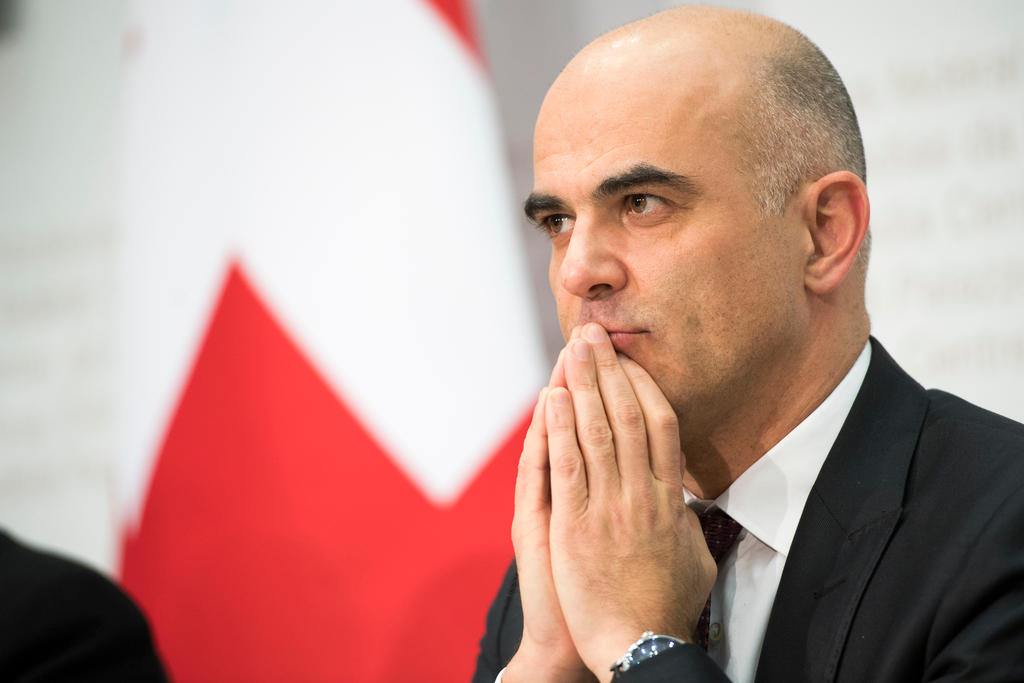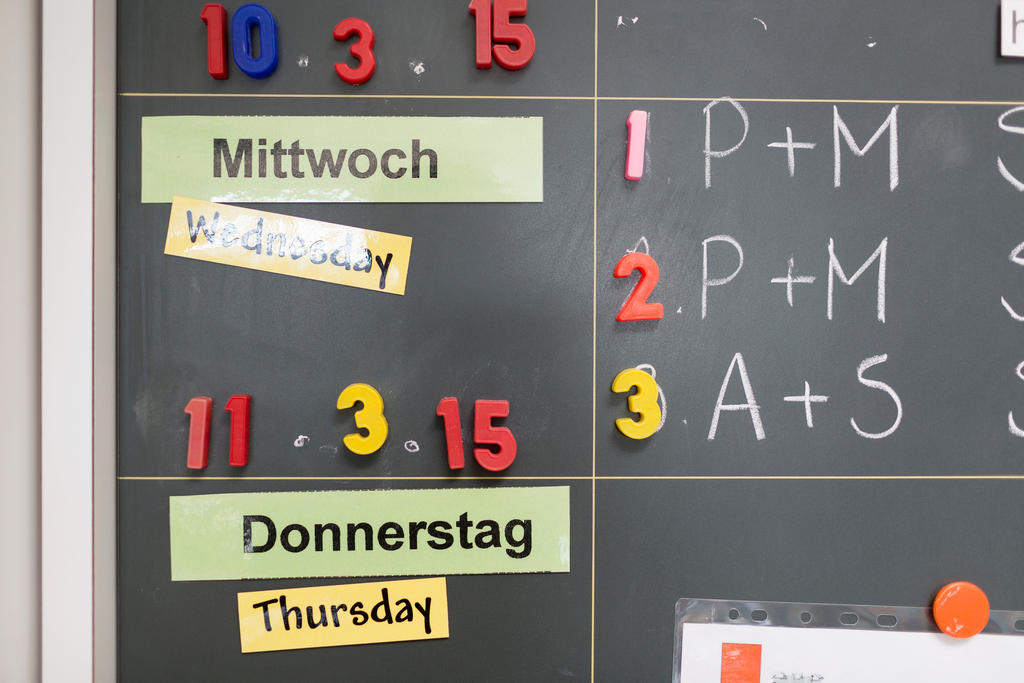Government stays out of language row

The Swiss government says it will not force primary schools to teach the national language of French by law. The move comes as some cantons move towards teaching English first, which has caused controversy.
“We don’t think that revising the law on languages is necessary at the moment,” Interior Minister Alain Berset told a news conference on Friday.
The government said External linkits decision was based on decisions that had been taken over the past months at cantonal level. This meant there was no need at the moment for the government to intervene.
Cantons are traditionally in charge of educational matters in Switzerland.
For example, canton Thurgau recently said it would start to rethink its decision against teaching French in primary schools. Voters in St Gallen rejected an initiative towards only teaching one foreign language at primary school on September 25.
The government has, however, mandated the interior ministry, in charge of education matters, to review the situation should a canton decide not to teach a second national language at primary level, Berset said.
Thurgau was one of several German-speaking cantons stopping or considering stopping teaching French at primary level, preferring English instead, which had caused an outcry in some quarters. The teaching of French is seem as essential for cohesion in multilingual Switzerland.
In July, Interior Minister Alain Berset sent three proposals on how to resolve the language row out for consultation. The government favoured the third variant, namely that a second national language should begin at primary school and that there should be a minimum of harmonisation in primary language teaching across the cantons.
Differences
The consultation process threw up differences between the German and French-speaking cantons. The French-speaking cantons want the government to get involved if the national language strategy is called into question. But some German-speaking cantons were against any intervention, or found it too early.
In its statement on Friday, the government said its position had been confirmed through the consultation process, but that everything must be done to maintain and build on the harmonisation of language teaching across the country.
“Multilingualism is a typical feature of Switzerland, but it comes with costs. Because several players have a say in language matters, they also share responsibility,” Berset said.
A meeting between the interior ministry and cantonal education directors will take place in the second half of 2017 at the latest to discuss developments, the statement continued.
On Friday, the cantons welcomed the government’s decisionExternal link.
Language strategy
In 2004, the cantonal educations directors created a national language strategy that said all cantons must teach two “foreign” languages in Swiss primary schools: English, and one Swiss national language of each canton’s choice.
Since then, the controversy over the teaching of additional languages during the nine years of compulsory schooling has been fuelled by opposition at both grassroots and parliamentary levels.
People’s initiatives are still underway, such as in canton Zurich, for the teaching of only one language at primary level over fears pupils are overburdened. There are cases are pending before the Federal Court.

In compliance with the JTI standards
More: SWI swissinfo.ch certified by the Journalism Trust Initiative












You can find an overview of ongoing debates with our journalists here . Please join us!
If you want to start a conversation about a topic raised in this article or want to report factual errors, email us at english@swissinfo.ch.